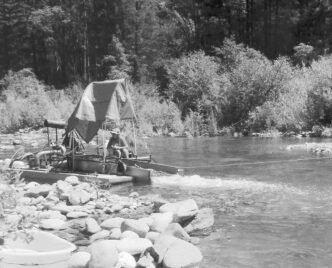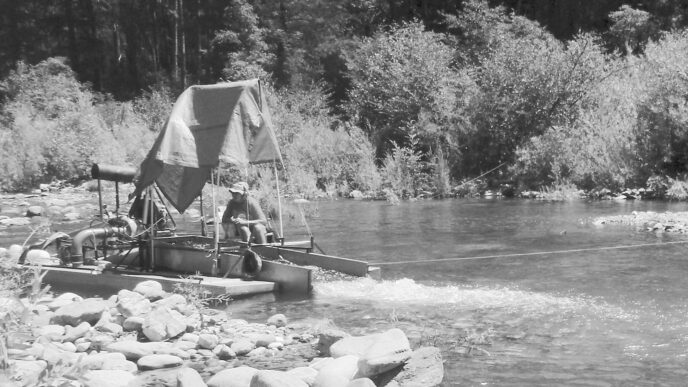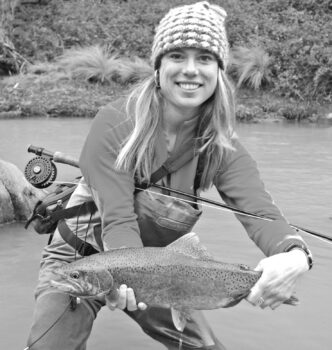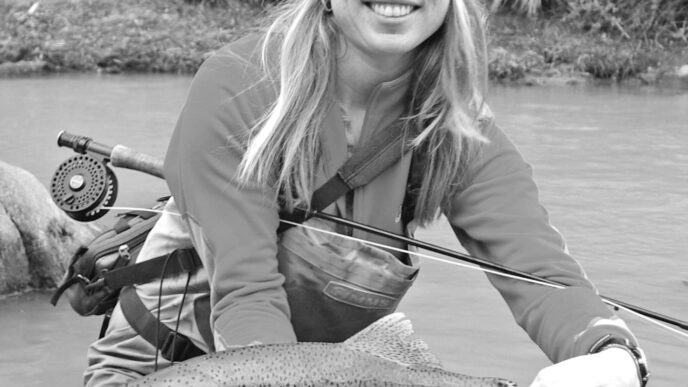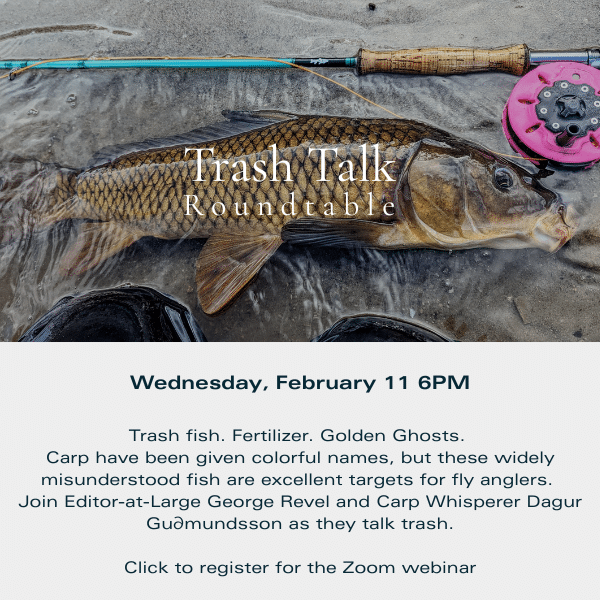Author’s note: Governor Jerry Brown recently signed into law Assembly Bill 2402, which among other things, changes the name of the California Department of Fish and Game to the California Department of Fish and Wildlife. The bill also changes the title of director of the Department of Fish and Game to the director of Fish and Wildlife. While the department folks are still trying to figure out how to implement all the changes, we thought we’d launch the use of the new name and title in this California Fly Fisher column.
Governor Jerry Brown has approved legislation to give a much-needed boost for wild trout, but has nixed funding for expanding fish hatcheries. The governor signed into law Senate Bill 1148, a measure that was introduced by Senator Fran Pavley, Santa Monica, to improve fisheries and that was shepherded through the legislative process by two major trout conservation groups. In the closing days of the 2011–12 legislative session that ended September 30th, state lawmakers passed the measure, cosponsored by California Trout (CalTrout) and Trout Unlimited (TU). It updates the Heritage and Wild Trout Program and would have provided $1 million to expand facilities at fish hatcheries, if it weren’t for the governor’s veto.
“I am signing Senate Bill 1148, which strengthens the Heritage and Wild Trout Program,” Governor Brown said in his two-paragraph bill-signing message. “Since the Hatchery and Inland Fisheries Fund is structurally imbalanced, I am line item vetoing the additional $1 million appropriation from this fund.” “Structurally imbalanced” is bureaucratic code for the fund being overspent, although the balance is in question. The fund gets revenue from the sale of sport fishing licenses. According to the Department of Fish and Wildlife’s 2012–13 Budget Fact Book, the fund has a balance of nearly $24 million, most of which has been committed to projects, but even after deducting these expenditures there could still be a net surplus. “Some people think it’s around $2 to $3 million,” said Curtis Knight, CalTrout’s conservation director, who works on department funding and other state legislation. “ That surplus was targeted for [DFW review of ] timber harvest plans, but we thought it was a good play to reallocate it to hatcheries.” The governor apparently disagreed, and his line-item veto did not allow the money to be used for hatcheries.
According to Knight, Senate Bill 1148 was intended to implement portions of a seven-year-old law, Assembly Bill 7, that expanded both hatcheries and the Heritage and Wild Trout Program. “Originally, AB-7 required the hiring of seven new Heritage and Wild Trout positions,” said Knight in an analysis of the program (http://Caltrout.org/tag/sb-1148), “yet within four years of passing these new positions were eliminated. The existing legislative intent of AB 7 is clearly not enough to ensure the sustainability of the program. SB 1148 fixes that by requiring seven new permanent positions for the program.”
In the 1970s, the state adopted its Wild Trout policy, which was later changed to protect and enhance heritage and native trout. A “wild trout” is defined as “a trout that was born in the wild and spends its live cycle in the wild, regardless of the origin of its parents or ancestors.” A “native trout” is one that was “found in the state originally, prior to human influences.” Later, the DFW used the term “heritage trout” to promote awareness of the program by encouraging anglers to catch six different trout to receive an award (See WildTrout for more information).
In an effort to reaffirm AB-7’s intent, SB-1148 requires the following.
- The DFW must update its Strategic Plan for Trout every five years. These plans spell out long-term priorities for wild trout and hatchery practices. (It was last updated eight years ago.)
- The DFW is to create and implement management plans for Heritage and Wild Trout waters within three years after their designation — thus reaffirming current law.
- By January 1, 2014, the DFW is to create an Interdepartmental Strategic Trout Management Team to provide direction and oversight on the Wild Trout stream and lake designation process.
- The DFW is to evaluate inventories of streams and lakes being considered as part of the Heritage and Wild Trout Programs with a goal of reviewing every watershed once per decade.
- The results of the review of streams and lakes are to be reported to the legislature every two years and posted on the DFW’s Web site.
- The department is to give priority to stocking native, hatchery-raised species where it deems appropriate in California waters.
- The DFW is to invest in hatchery facility improvements and rehabilitation each year.
- The DFW is to establish funding for Heritage Trout waters as a priority.
- The DFW is to conduct “angler awareness and fishing preference” surveys and expand the awareness of education programs at hatcheries. While the DFW performs many regional, issue-specific and species-specific polls, the department has not done a general statewide recreational angler survey in a number of years.
“The department needs to do an angler satisfaction survey,” said Knight. “We need to find out where they would like hatcheries, good places to stock, and areas that are popular.”
It may seem ironic that trout groups that built their reputations on catch-and-release issues and creating and promoting the Wild Trout Program have devoted so much time and energy to SB-1148, which set hatchery production levels and practices and allocated $1 million for fish hatcheries. However, staff members of CalTrout and TU said their organizations are not anti hatchery, but consider hatcheries part of the mix of strategies for managing trout populations and enhancing sport fisheries.
“TU is not opposed to stocked fish — nor am I,” said TU’s California director, Brian Johnson. “Some of my kids’ favorite campsites are near streams filled with hatchery trout. Those of us who like to practice both catch-and-release and catch-and-eat fishing will continue to have that opportunity throughout California. SB1148 will improve trout populations and trout-fishing opportunities for all anglers.”
SB-1148 is one of a number of fish-and-wildlife legislative measures that the governor signed into law. Passage of the trout legislation was helped by the fact that DFW director Charlton “Chuck” Bonham, who has been on the job one year, previously had been a state director for Trout Unlimited in California.
Aside from SB-1148, here is a summary of other significant fish-and-wildlife and outdoor recreation bills that became law during the legislative session that ended in September.
“Visioning” Process Implementation, Name Change
Assembly Bill 2402, introduced by Assembly Member Jared Huffman, D-San Rafael, helps implement recommendations stemming from a year-long strategic “visioning” process for the Department of Fish and Wildlife and the Fish and Game Commission that had been convened by the California Natural Resources Agency. (See http://www.-vision.ca.gov.). Specifically, the legislation initiates the following actions.
- Changes the name of the California Department of Fish and Game to California Department of Fish and Wildlife (DFW). (A bill to change it to “CAL WILD” was introduced, debated, and died in the legislature.) However, supplies, signs, uniforms, and other items that refer to the California Department of Fish and Game will remain in use until they are out of stock or no longer servicable.
- Changes the title of the director of Fish and Game to director of Fish and Wildlife. The bill does not change the name of the California Fish and Game Commission.
- Establishes a Science Institute to assist the department and commission with actions proposed by independent science reviews and to provide advice and recommendations.
- Requires that the DFW develop a strategic plan to implement the recommendations of the visioning process. DFW officials have said that the process of creating the new plan will begin soon, take about a year, and include outreach to many individuals, groups, public officials, and other stakeholders.
- Creates an Environmental Crimes Task Force to facilitate prosecution of wildlife crimes.
- Requires that the DFW use ecosystem and adaptive management and “credible science” in its decision making.
- Encourages intergovernmental coordination and nonprofit partnerships.
- Requires that the commission set lifetime hunting license and other fees in a way that the revenue fully pays for administration and implementation costs.
- Authorizes the DFW to accept private funds to help pay for its conservation work.
- Requires that by January 1, 2016, the DFW create an electronic system for managing citations by game wardens and for sharing the citation information with the courts.
- Provides that money from gifts, bequests, donations, or city or county funds be credited to the DFW’s Fish and Game Preservation Fund, which pays for conservation projects and other work.
- Provides that game wardens receive the same compensation for being disabled from an on-the-job injury as other state peace officers.
Fish and Game Commission
Assembly Bill 2609, introduced by Assembly Member Ben Hueso, D-Chula Vista, makes the following changes in the operations of the five-member Fish and Game Commission.
- Requires that the members of the commission elect a president and vice president annually.
- Prohibits the president and vice president from serving more than two consecutive terms.
- Prohibits the commission from adopting rules making a commissioner ineligible to serve as president or as vice president.
- Authorizes the president or vice president to be removed by a vote of three commissioners.
- Requires that in the case of a vacancy, the commission must fill the president or vice president position at the next meeting after the vacancy occurred.
- Encourages the governor and the Senate Committee on Rules to consider setting “minimum qualifications” for selecting, appointing, and confirming commissioners. The minimum qualifications include enhancing diversity and geographic representation, a background in or familiarity with natural-resource management programs, previous experience on public-policy issues, commitment to attending meetings, exposure or experience in science-based decision making, and knowledge of scientific disciplines or outdoor recreation.
- Requires that by July 1, 2013, the commission adopt a code of conduct saying that commissioners shall faithfully discharge their duties, follow the principles of fundamental fairness and due process, be free of the undue influence of power and authority, require public awareness to instill confidence in the commission, preserve the public welfare and public trust in decision making, conduct himself or herself in way that does not discredit state laws, policies, and regulations, or the principles of the commission, and not use the official commission position to influence a commission decision in which the member has a financial interest.
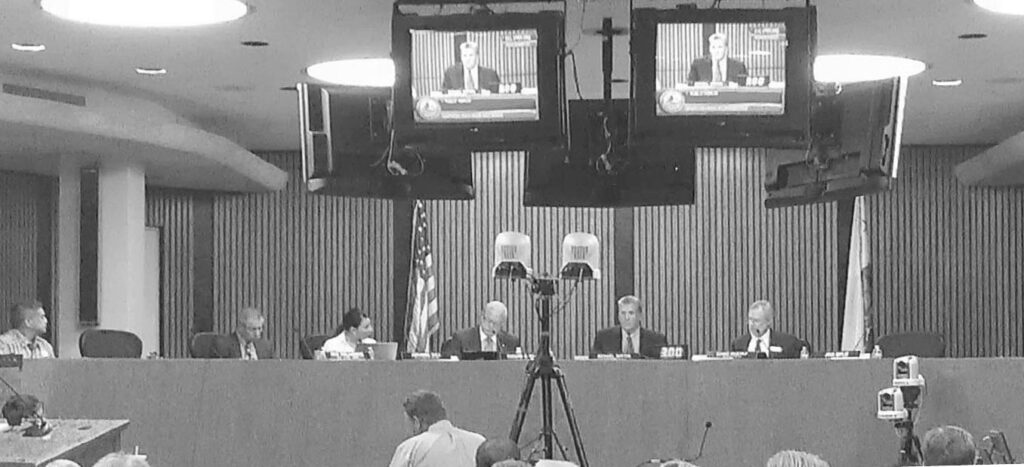
Coho Salmon Habitat
Assembly Bill 1961, also introduced by Assembly Member Jared Huffman, is the Coho Salmon Habitat Enhancement Leading to Preservation Act, to be known as the “Coho HELP Act,” which authorizes the department to create cost-recovery fees for projects impacting coho salmon habitat and to dedicate these funds for habitat and recovery projects. The bill appropriates $37,500 for the DFW to hire a half-time engineer for the remainder of the 2012–13 fiscal year to administer the act.
According to Huffman, the bill empowers the DFW “to use a one-stop process for approving immediate on-the-ground habitat restoration projects proposed by government and nongovernment partners ready to come to the aid of California’s struggling coho salmon populations.”
CalTrout’s conservation director, Curtis Knight says, “This is a huge one, because it speeds up the process for permitting restoration projects.” He added that The Nature Conservancy played a key role in gaining the bill’s passage.
Nonprofit Partners
Senate Bill 1107, introduced by Senator Tom Berryhill, R-Ripon, authorizes the DFW to allow nonprofit conservation groups to promote their work by including their logos and Web site links on the department’s online system for obtaining licenses and permits by January 1, 2015.
Wildlife Poaching
Assembly Bill 1162, introduced by Assembly Member Wesley Chesbro, DSanta Rosa, increases the fines for poaching wildlife, particularly for selling or trafficking in bear parts.
Wildlife Land Fees
Senate Bill 1249, introduced by Senator Lois Wolk, D-Davis, directs the DFW to collect entrance fees by January 1, 2015, for so-called “nonconsumptive” users (those who don’t fish or hunt) to access some of the 711 properties that the department owns and manages. Those holding a valid hunting, fishing, or trapping license are exempt from paying the fee. Currently, the department collects such fees at only 19 of these areas. At least 35 percent of the fee revenue must be used at the area from which it was collected. The bill also requires county boards of supervisors or fish-and-game commissions to use their shares of revenue from fish-and-wildlife fines for conservation or wild-life education or enhancement purposes.
Restoration Fund
Senate Concurrent Resolution 103, introduced by Senator Berryhill, recognizes the seventy-fifth anniversary of the federal Wildlife Restoration Act of 1937. Since then, that and other similar acts have contributed $13 billion nationally for fish-and-wildlife enhancement and protection. California receives some $9 million annually from the act, which gets its revenue from fishing and hunting license fees and an excise tax on outdoor equipment.
For copies of the bills, committee analysis, and votes, see http://www.legislature.ca.gov/port-bilinfo.html. For the list of bills signed or vetoed by Governor Brown, see leases.php.







